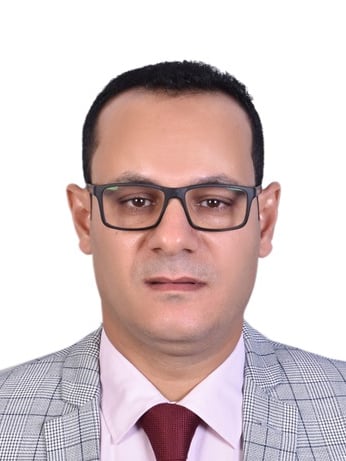El-Sayed El-Azazi
Research Fellow
El-Sayed Mohammed El-Azazi


Dr. EL-Sayed Mohammed El-Azazi is a senior genetic resources consultant and biotechnology expert at the Agricultural Research Department, Qatar's Ministry of Municipality, with over two decades of experience in plant conservation and environmental policy in Egypt and Qatar. From 2003-2024, he worked in the Egyptian Deserts Gene Bank, Desert Research Center, establishing pioneering protocols for desert plant preservation. He later founded Qatar's Gene Bank and has led major research initiatives in agricultural biotechnology and desert ecosystem restoration while driving innovation in sustainable development and biodiversity conservation through evidence-based environmental policies.
Education
Ph.D. in Ecophysiological Studies, Suez Canal University (2013) Focus: Acacia species adaptation and conservation in Egyptian deserts
M.Sc. in Environmental Agricultural Sciences, Suez Canal University (2008) Specialization: Seed preservation in gene banks
B.Sc. in Environmental Agricultural Sciences, Suez Canal University (2002)
Areas of Interest
Plant genetic resources conservation and management
Terrestrial ecological assessment and biodiversity monitoring
Environmental impact assessment and policy development
Heat stress tolerance in agricultural systems
Climate-resilient crop development
Gene bank establishment and management
Desert ecosystem restoration
International environmental policy
Selected Publications
Elazazi, E. et al. (2024). Genotypic Selection Using Quantitative Trait Loci for Better Productivity under High-Temperature Stress in Tomato. Horticulture.
Alhaddad, F., Abu-Dieyeh, M., Elazazi, E., & Ahmed, T. (2021). Salt tolerance of selected halophytes at the two initial growth stages for future management options. Scientific ReportsElazazi, E. (2018). Distribution of the Endangered Haloxylon persicum Bunge ex Boiss & Buhse Ghada and conservation for food security In Qatar. Qatar Foundation Annual Research Conference Proceedings.
Many publications on biodiversity conservation and sustainable agriculture in regional journal
Address
No 10, Block 28023
3rd District, Obour City, Egypt
Contacts
+201100899991
Careers


Copyright © EUMENA 2024
Terms and conditions
Privacy Policy
Commercial Reg.
105282
